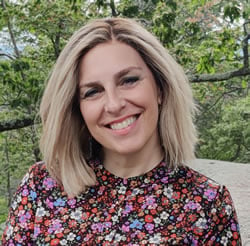Dear reader,
How do you view humanity? Are people born innately good or essentially evil? Do we have a basically good nature that is corrupted by society or a basically bad nature that is kept in check by society?
It’s a fundamental question that has been debated endlessly.
A study conducted by Scientific American tested people’s responses based on two mechanisms: intuition or reflection. “Intuition is automatic and effortless, leading to actions that occur without insight into the reasons behind them. Reflection, on the other hand, is all about conscious thought—identifying possible behaviors, weighing the costs and benefits, and rationally deciding on a course of action.”
Based on these responses, the study suggested that people’s first and intuitive impulse was to cooperate; only upon further reflection did they decide to be more selfish. The test concluded that people are instinctively willing to give for the good of the group, even at our own personal expense.
But does this mean that we are naturally cooperative, or that it has become instinctive because cooperation is rewarded by society?
Researchers at Yale University experimented on babies, who have the minimum of cultural influence. Basing their study on the fact that babies will reach for things they want or like—and will look longer at things that surprise them—their results suggested that even the youngest humans have an instinct to prefer good over evil, friendly helpful motivations over malicious ones.
But if we’re born good, why do parents have to devote major efforts to raise children to become good adults? Why don’t we naturally express gratitude, and instead need to learn it? Why does every civilization require so many laws and consequences to control human behavior? And why has so much evil been perpetuated by humanity over the centuries?
Bechukotai begins with the verse: If you walk in My statutes (Lev. 26:3)
The Talmud explains that the word “if” is to be understood as a plea on the part of G d: “If only you would follow My statutes . . . ”
But the word chok (“statute” or “decree”) literally means “engraved.”
A rabbi once remarked: “Every Jew is a letter in the Torah. But a letter may grow somewhat faded. It is our sacred duty to mend these faded letters and make G d’s Torah whole again.”
Rabbi Yosef Yitzchak of Lubavitch objected: “No, the identity of the Jew cannot be compared to erasable ink on parchment. Every Jew is indeed a letter in G d’s Torah, but a letter engraved in stone. At times, the dust and dirt may accumulate and distort—or even completely conceal—the letter’s true form; but underneath it all, the letter remains whole. We need only sweep away the surface grime, and the letter, in all its perfection and beauty, will come to light.”
The person, just like the letter in its true form, is whole.
Chana Weisberg
Editor, TJW







